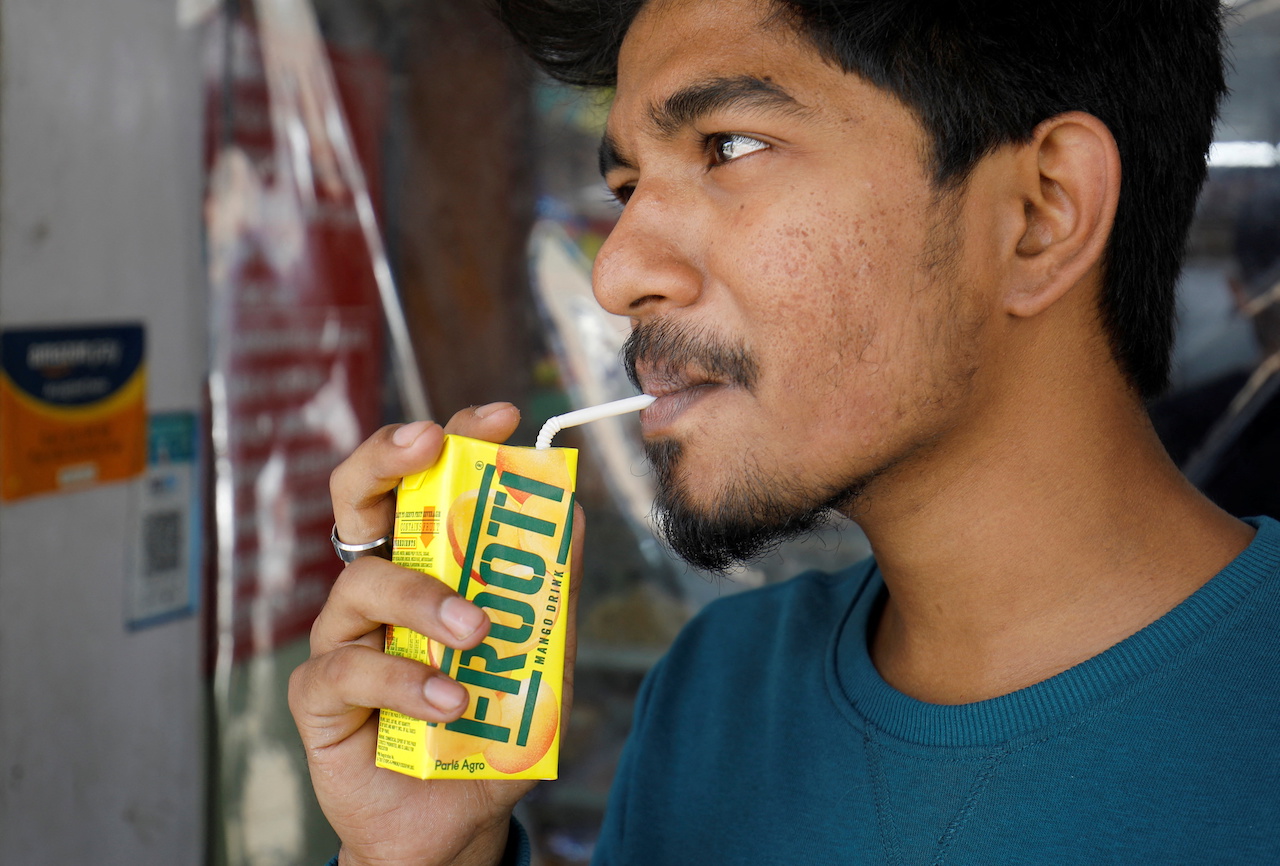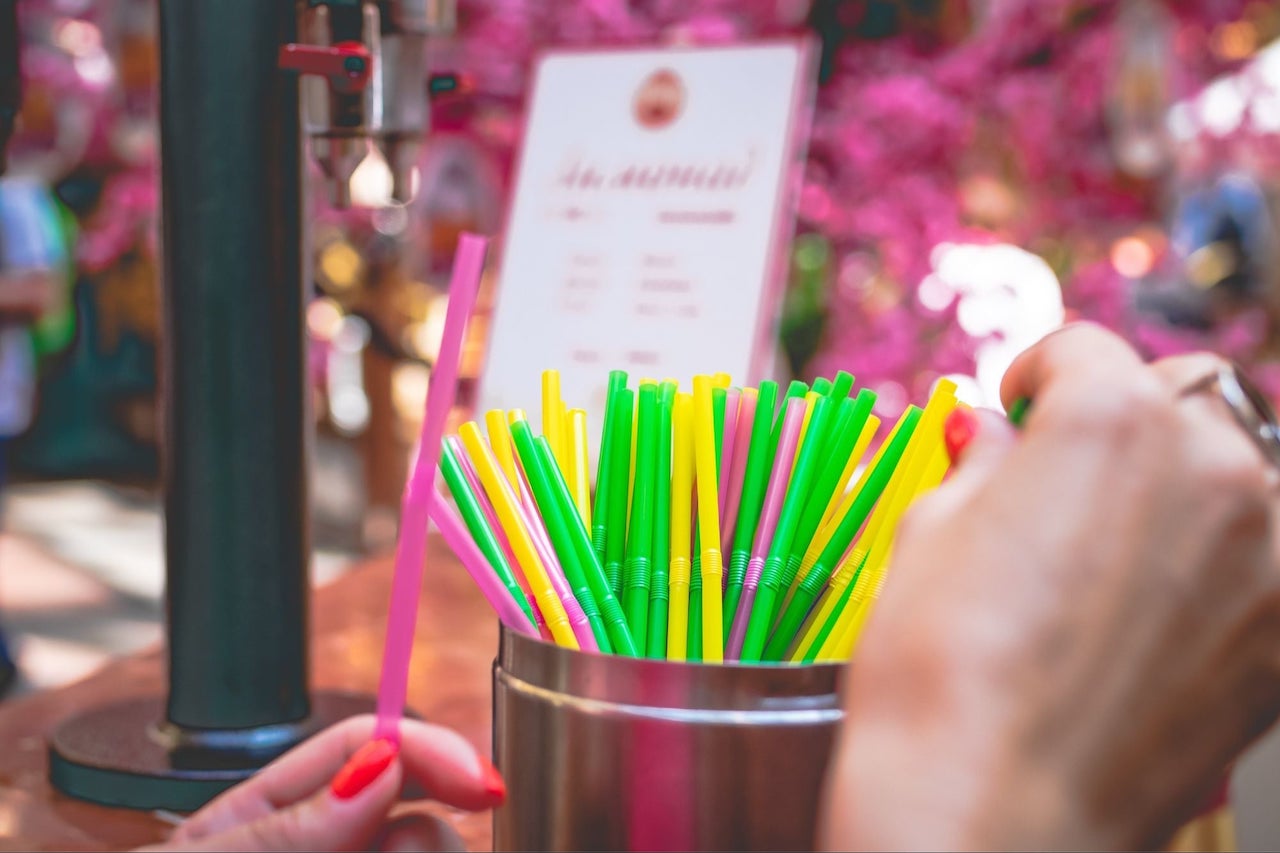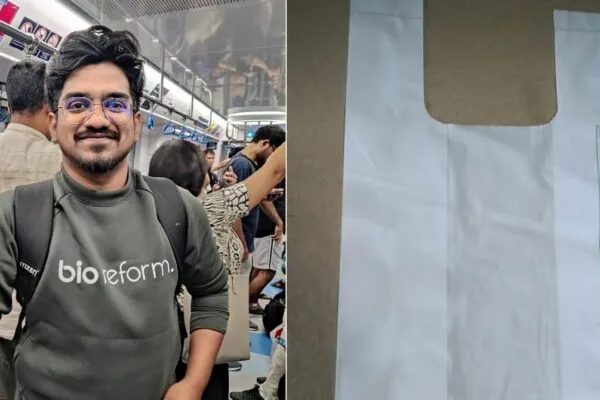Modi’s Plastic Straw Ban Triggers Fear in Beverage Companies
Modi’s promise to ban plastic straws this month put the nation in the lead to curb plastic pollution, but is India ready?

Image: Reuters
In 2019, Indian Prime Minister Narendra Modi pledged to eliminate single-use plastics. The government says that food and beverage makers had years to get ready for this but when it was time to implement the plastic straw ban in India, the companies reacted as if they were caught off guard.
According to beverage manufacturers, the biggest challenge for the industry right now is to meet the deadline. The pandemic impacted the supply chains while increasing competition among worldwide buyers, and currently there are no domestic alternatives to use in place of plastic straws.
Schauna Chauhan, chief executive officer of Parle Agro – the owner company of beverages Frooti and Appy – sent an email to Modi stating that the industry is now forced to import when costs are increasing and currently, there are many disruptions in shipping globally. On the other hand, Modi’s goal is to eliminate the major environmental scourges in the country, which seems futile unless he is willing to shut down major textile and chemical plants among many other things that – while polluting the environment – provide a livelihood to hundreds of thousands of people.
Out of 380 million tonnes of plastic generated each year, around half of it consists of single-use plastic, such as cutlery, packaging, and straws. About 14 million pieces of plastic get into oceans every year, furthering the ecological disaster. The toxicity of plastics is why single-use plastic straws have been a major target for most governments throughout the world.
In India, like many other nations, the government wants to eliminate the smallest part of plastic packaging i.e. a straw. As a result, several companies are looking for alternatives instead of redesigning the whole box. Recently, Dabur started using imported paper straws and started attaching them to their low-cost Real juice packs in June.

Image: Entrepreneur
According to Praveen Aggarwal, CEO of Action Alliance for Recycling Beverage Cartons, beverage makers in India use approximately 6 billion straws every year. Currently, the capacity of Indian manufacturers for biodegradable plastic is only 8 percent to meet the demand. The beverage companies simply cannot import over 20 percent of the amount they require.
However, the business is growing for Indian startups that are using alternatives to plastic straws. For instance, Evlogia Eco Care uses straws made from coconut palm leaves. But these sustainable straws are for high-end resorts and restaurants due to their price that’s five times more than a regular plastic straw.
Even though the interest has increased in using alternatives to plastic straws, the demand is 10 times the production capacity of the beverage manufacturers.
If the companies switch to imported paper straws, there will be an increase in the cost between 0.25 rupees and 1.25 rupees (2 cents) to the price of each unit. This would make a huge difference when a 150 ml pak of Frooti by Parle Agro costs only 10 rupees. Moreover, the retailers and traders who are still trying to clear the old stock are at risk of being penalized.
There are special enforcement squads for targeting urban “hotspots” of single-use plastics. There will be surprise inspections too. And, the authorities will impose a heavy fine on defaulters. The offenders are likely to face a penalty of up to 100,000 rupees or/and a jail term.
On the other hand, the small retailers in certain areas of Kolkata ran out of tetra paks of Frooti, Amul milkshakes, and Real juice. There is no supply of these tetra paks, as the companies are changing their straws. As a result, the beverage companies are urging the central government to extend the ban. With the government pondering over extending the ban by the end of the year, experts are arguing that the country is not ready yet.
Via: Bloomberg


